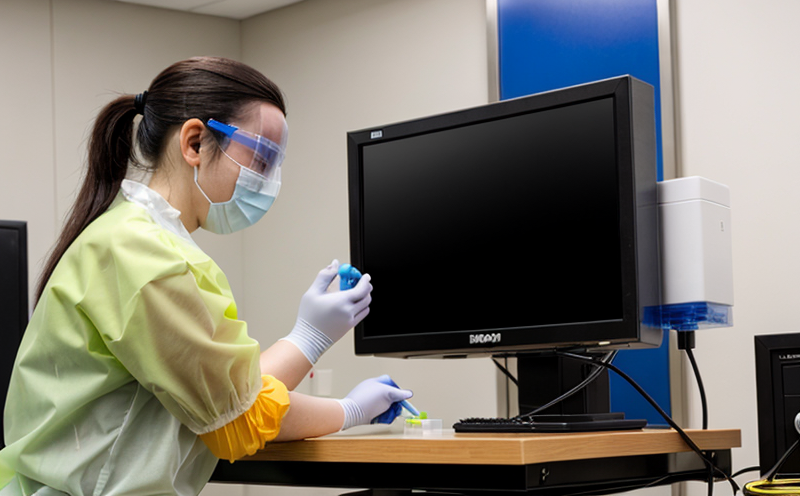Biocompatibility Testing
Biocompatibility testing is a critical component of ensuring that medical devices are safe and effective when used by patients. This test evaluates whether the materials or components of a medical device will interact safely with human tissues, body fluids, and cells without causing harm. The primary goal is to prevent adverse biological responses such as inflammation, infection, toxicity, or allergic reactions.
The process involves several steps, including determining the appropriate testing standards (such as ISO 10993-1) that apply to the specific medical device, selecting relevant test methods, and performing rigorous evaluations. These tests can be conducted on various materials like metals, plastics, polymers, ceramics, composites, coatings, lubricants, and adhesives.
The biocompatibility of a material is determined by its interaction with biological systems over time. This includes assessing the physical, chemical, and biological properties of the material. The tests are designed to evaluate both short-term and long-term effects, ensuring that any potential risks are identified early in the development process.
During biocompatibility testing, various types of specimens may be used depending on the device's intended use. These can include extracts from materials, particles suspended in a physiological solution, or even the actual medical device itself if it is small enough for extraction. The tests aim to identify any leachable substances that could potentially cause harm.
The testing process typically involves several stages:
- Extraction: Extracting potential leachables from the material or device using a simulated physiological environment.
- Toxicity Testing: Evaluating the toxicity of these extracts by exposing them to cell cultures or animal models.
- In Vivo Studies: Conducting live animal studies to observe any adverse effects on the organism as a whole, including systemic responses.
- Statistical Analysis: Using statistical methods to interpret data and determine if there are significant differences between control groups and test groups.
The results of these tests provide valuable insights into how safe a particular material or device is for use in medical applications. Compliance with relevant standards not only helps protect patients but also ensures that manufacturers meet regulatory requirements worldwide.
Biocompatibility testing plays an essential role in the development and approval process for new medical devices. It ensures that these devices do not pose unnecessary risks to users, thereby enhancing patient safety and confidence in healthcare technology.
Why It Matters
Ensuring biocompatibility is crucial because it directly impacts patient safety and the overall success of a medical device. Without proper testing, there could be unforeseen adverse reactions that compromise both efficacy and public trust. Regulatory bodies worldwide emphasize compliance with relevant standards like ISO 10993-1 to ensure consistent quality across different markets.
Compliance with these regulations helps protect patients by preventing harmful interactions between the device and their bodies. It also reduces liability risks for manufacturers who adhere strictly to established protocols during product development phases. Additionally, it fosters innovation within the industry as companies invest in safer materials and design improvements based on scientific evidence obtained through rigorous testing procedures.
- Enhances Patient Safety: By identifying potential hazards early in the design phase, developers can implement necessary modifications before introducing products to market.
- Builds Trust Between Providers and Patients: When medical devices meet stringent biocompatibility standards, healthcare providers feel more confident recommending them to their patients. Similarly, informed consumers appreciate knowing they are receiving safe treatments.
- Promotes Regulatory Compliance: Adhering to international guidelines ensures that products comply with local laws and regulations, simplifying market entry processes across regions.
In summary, biocompatibility testing serves as a cornerstone for advancing responsible medical device manufacturing practices while safeguarding public health interests globally.
Why Choose This Test
- Comprehensive Evaluation: Our biocompatibility tests offer a thorough assessment of your materials or devices, covering all relevant aspects according to international standards.
- Expertise and Experience: Leveraging years of experience in medical device testing allows us to provide accurate results tailored specifically for each unique case study.
- State-of-the-Art Equipment: Utilizing cutting-edge technology ensures precise measurements and reliable data collection throughout the entire process.
- Custom Solutions: Whether you need assistance with sample preparation, method development, or full-service testing packages, we have flexible options to suit your needs.
Selecting our biocompatibility tests offers peace of mind knowing that every step is conducted meticulously according to best practices recognized by industry leaders. This approach guarantees high-quality results that can be relied upon during regulatory submissions and clinical trials.
Competitive Advantage and Market Impact
- Innovation Leadership: By staying ahead of emerging trends in biocompatibility research, we help our clients introduce groundbreaking innovations faster than competitors.
- Global Reach: With expertise spanning multiple regions, we assist companies navigating diverse regulatory landscapes efficiently.
- Patient Trust and Satisfaction: Demonstrating commitment to patient safety builds stronger relationships with healthcare providers and end-users alike.
- Enhanced Brand Reputation: Successfully passing biocompatibility tests enhances brand reputation among stakeholders who prioritize ethical manufacturing practices.
The ability to demonstrate robust compliance with international standards provides a significant competitive edge in today's increasingly regulated marketplace. It not only attracts more business but also fosters long-term partnerships built on mutual respect and shared values.





